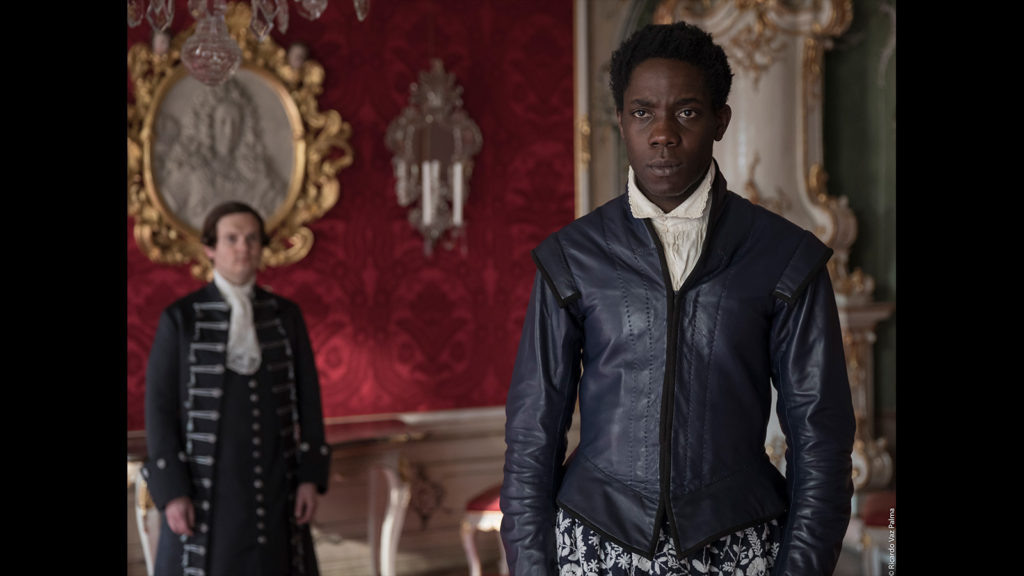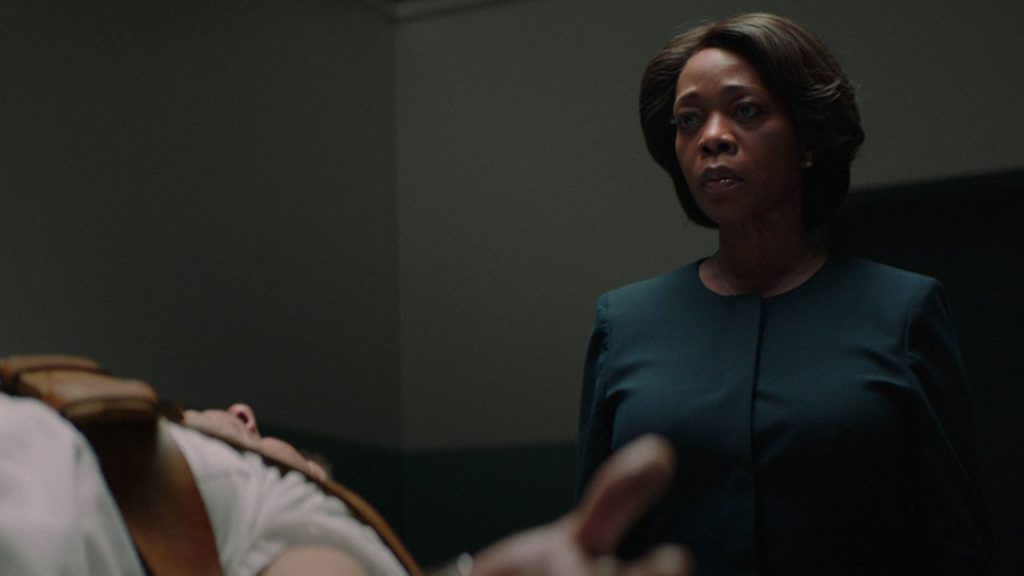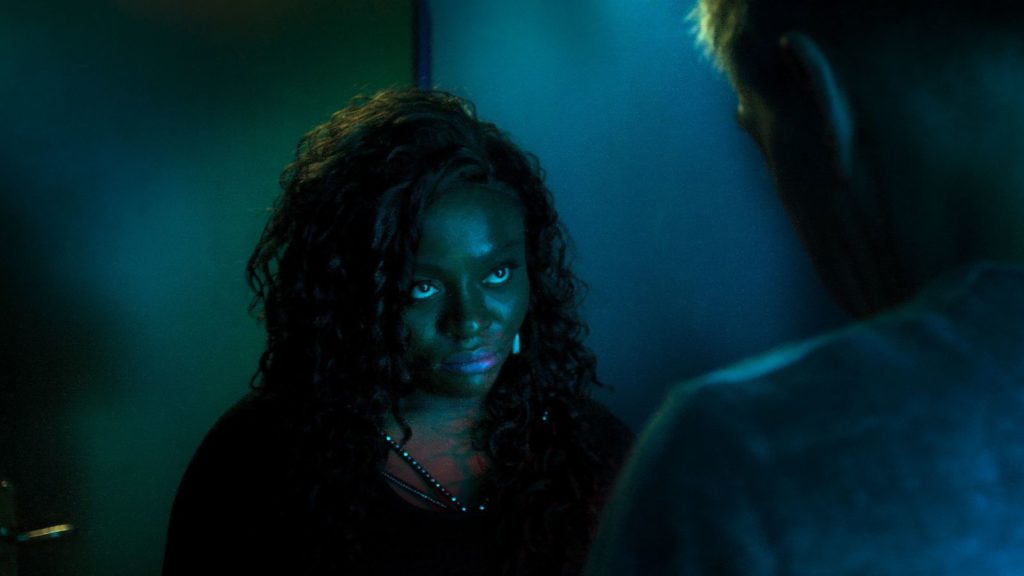Kemi Osukoya
THE AFRICA BAZAAR MAGAZINE
March 26, 2019
WHEN NIGERIAN-BORN, ALASKAN-RAISED Chinonye Chukwu was 13 years old, she dreamt of becoming a filmmaker. Though it would later take several years of studying, tenacious handwork, and good fortune before that dream finally becomes a reality, she never gave up.
Tomorrow’s night, Chukwu will become a part of nearly half-century rich tradition of American filmmaking history when her sophomore film, Clemency, kickoffs one of America’s most prestigious annual film festivals, the 48th annual New Directors New Films, organized by the Film Society of Lincoln Center and the Museum of Modern Art in New York city.
Chukwu’s film, Clemency, which stars American famed actress Alfre Woodard as a prison warden named Bernadine, is based on a real life event that took place nearly eight years ago at a Georgia State prison on September. 21, when a potential innocent black man named Troy Davis, who was on death row, was executed. The film delves into the emotional and psychological odyssey of a prison warden as she struggles with her professional responsibility and the consequences of carrying out death penalty executions. The film thematically steers audience through an ecosystem of psychological implications that are tied to human imprisonment, capital punishment and the prison industry.

Nigerian-born filmmaker Chinonye Chukwu
Chukwu, who was drawn to the project -a multi year of writing and directing the film, said she grew frustrated and angry when Davis was executed by the state, despite protests and pleads from hundreds of thousands of citizens from the state, and prison wardens to the Georgia’s governor to stop Davis from being executed based on the possibilities of his innocent. She decided to channel her aftermath emotions into exploring the potential psychological drama associates with working as a prison warden. The result is a fascinating film that explores the morality of capital punishment and the dignity of work, and encourages audience to reflect about the implications of American justice system.
Clemency, which also stars Wendell Pierce as Bernadice’s husband and Aldis Hodge as Anthony, the inmate next on death row, made it debut in January at the Sundance Film Festival where it won Chukwu a monetary prize as well as honor as the first black female filmmaker to win the festival biggest prize, the Grand Jury Prizes, given to competition films as voted on by individual juries.
Clemency will make its New York debut tonight at MoMA as this year’s NDNF festival’s Opening selection. The NDNF, which is taking place in New York city this week through April 7, features other notable films, including three other Sundance award-winners.
Below are five other noteworthy African-thematic films showing at the festival that we are excited to go see:
Angelo, directed by Markus Schleinzer, is historical film that charts the career of an African slave, who was captured as a young boy and sold into 18th-century Viennese court society. Angelo becomes the pet project of a wealthy countess, Alba Rohrwacher, who carries out what she believes is her Christian duty to civilize him. As the years progress, Angelo rises to become her surrogate prodigal son and the beloved Court Moor of the Habsburg empire: the projection of every European fantasy of the noble savage. When an astonishing secret is exposed, Angelo is banished from the court, leading to a horrifying, dehumanizing fate. Schleinzer traces Angelo’s life with a clinical sobriety, but also with an artifice (painted sets, blackface, exoticizing costumes and dioramas, sudden contemporary intrusions) that serves to reinforce the idea of race as a persistent prejudicial construct.
Joy, from Austrian filmmaker Sudabeh Mortezai, is 99 minutes film in English, with Nigerian Pidgin, and German subtitles, starring Nigerian-born artress Joy Anwulika Alphonsus as Joy, a young Nigerian sex worker living in Vienna, struggling to simultaneously create a better life for her family and pay off her madame. The film explores the vicious cycle of human trafficking, the dehumanization of sex trafficking victims and, the moral as well as the political costs of human trafficking. The film will also be available on Netflix.
In Long Way Home / Temporada, a contemporary feature film by Brazilian director André Novais Oliveira, is a deft and deeply felt character study of a woman named Juliana, played by artress Grace Passô, who moves from her Brazilian hometown of Itaúnas to the larger and more sprawling Contagem to take a job within a public-health program combating the spread of dengue fever. While waiting for her husband to join her, she sets about making the rounds, inspecting people’s homes for mosquito hiding places and becoming acquainted with a new cast of characters who will lead her to look beyond her past and toward an uncertain future.
In Sofia Bohdanowicz and Deragh Campbell’s clever comedy, MS Slavic 7, which is making its North American premiere, a young woman tasked with executing the estate of her great-grandmother, a renowned Polish poet, takes a trip to Harvard University to research a correspondence between her deceased relative and another poet who seems to have been her lover. What initially seems a purely scholarly investigation into her family’s literary history proves a lightning rod for the various disputes, resentments, and tensions bound up in the business of enhancing a family member’s legacy.
In Mexico City, there are fewer than 45 government-run ambulances to serve the city’s population of nine million. Filling the void are family-run private operators, often little more than a single, beaten-down van, who race to the scene of an accident or a crime while also dodging police shakedowns, cutthroat competitors, and standstill traffic. In Midnight Family, Mexican director Luke Lorentzen, follows the Ochoa family—the gruff but compassionate Fer and his two underage sons, Juan and Josué—at intensely close range on these Sisyphean missions of mercy. Though their wages of fear bring the scarcest of financial rewards, the Ochoas persevere, knowing they alone can save the girl with the traumatic brain injury or the teenage victim of domestic abuse from tragic ends. It’s “arguably the most exhilarating documentary to come out of Sundance this year.






